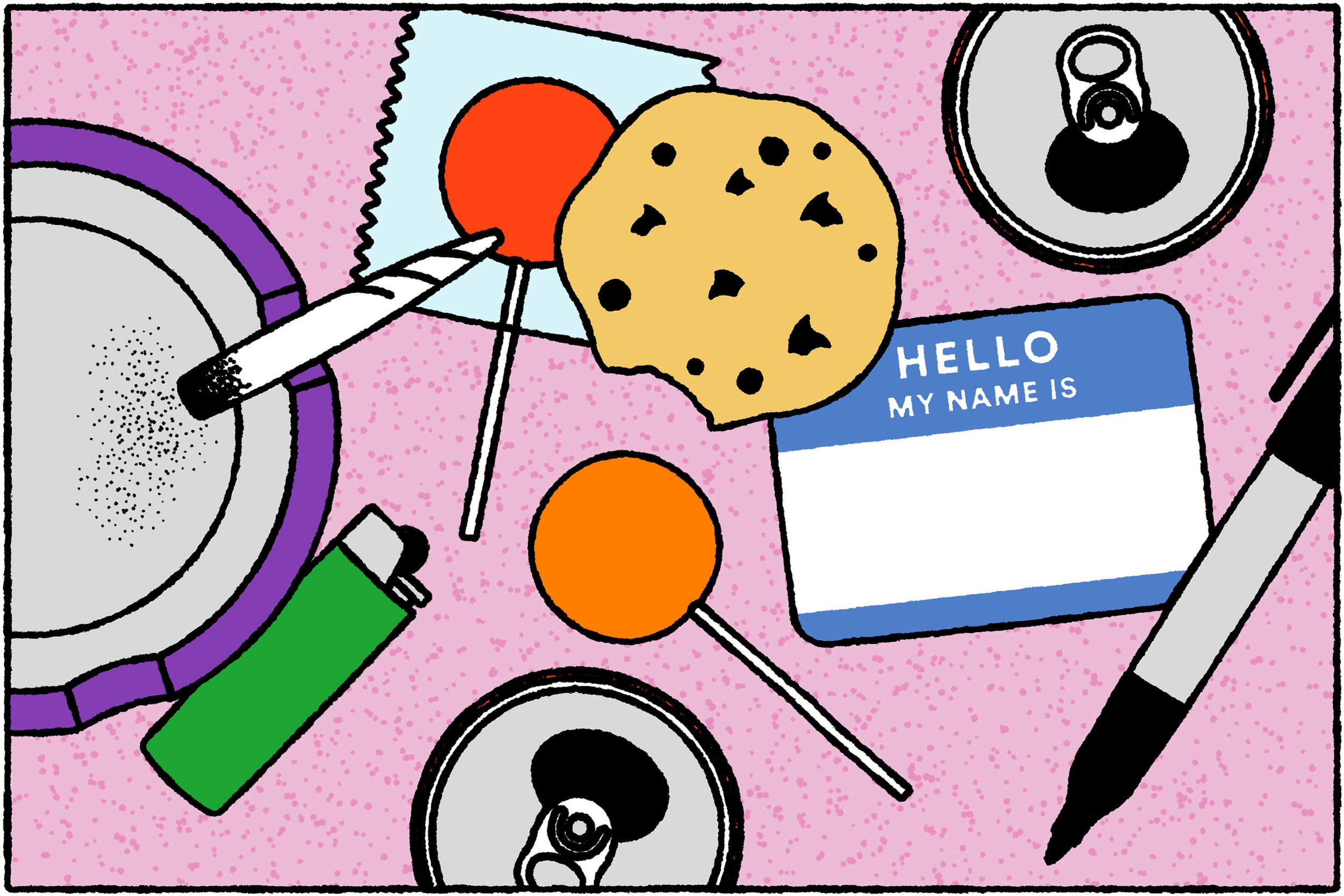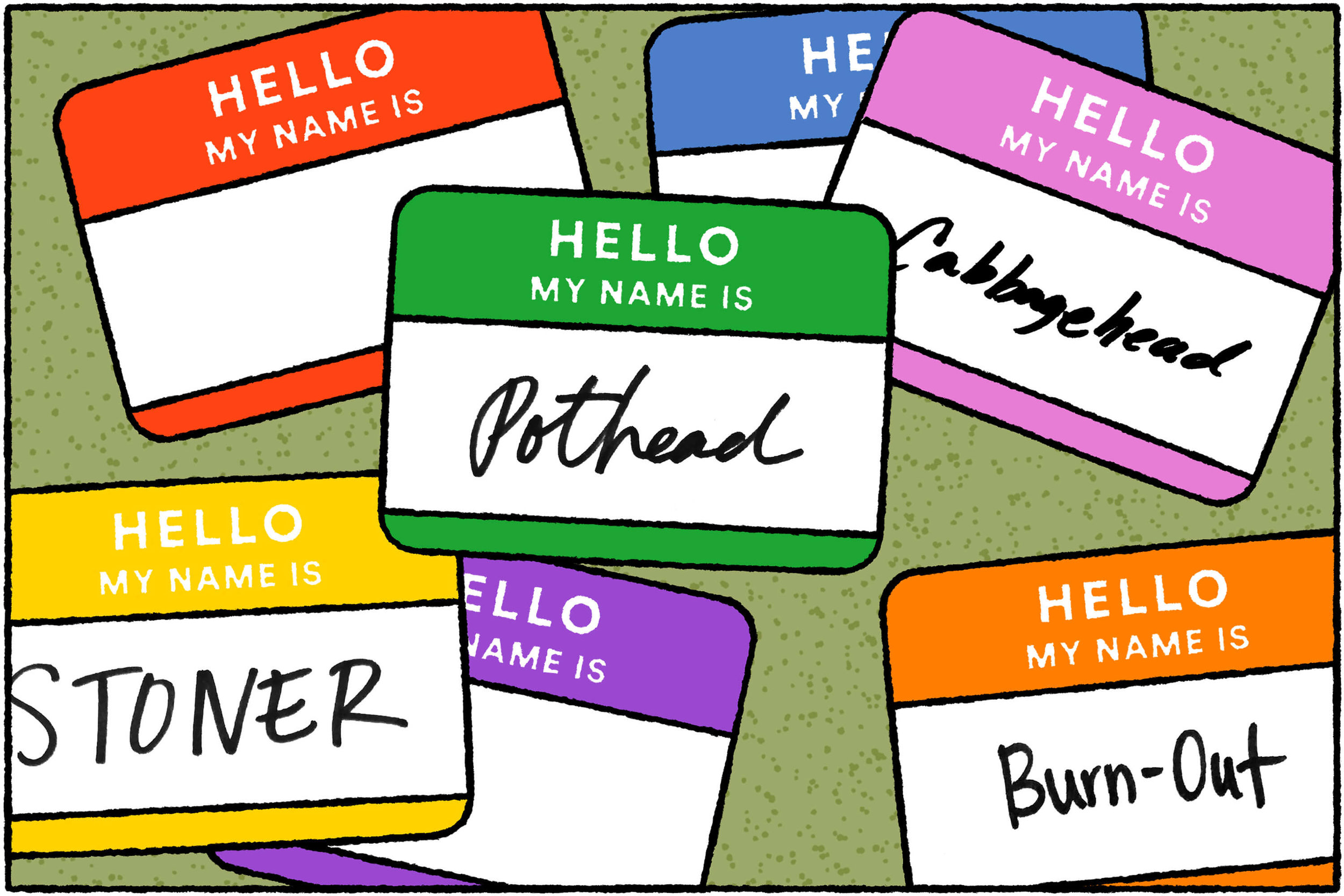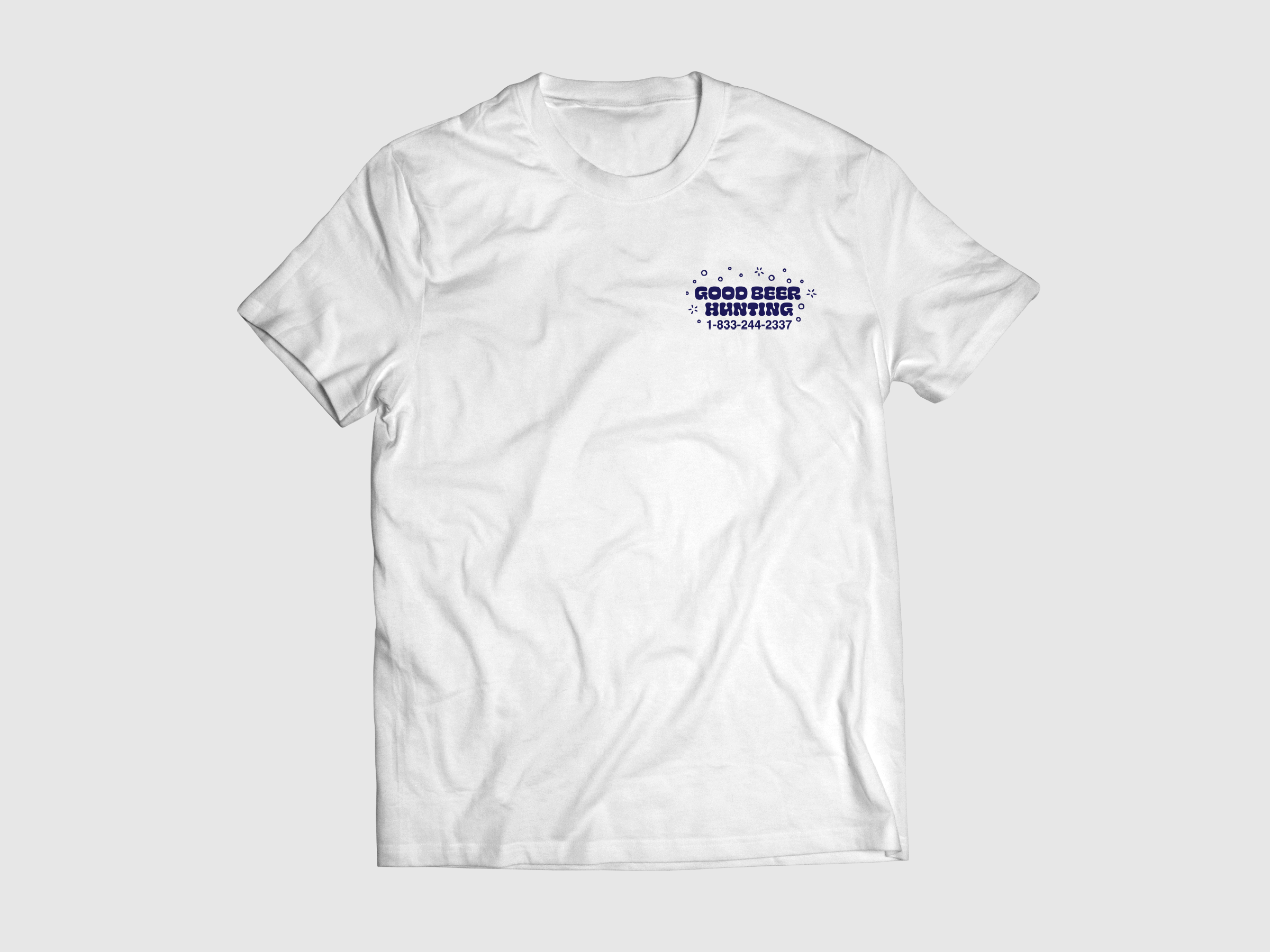Steve Miller called himself a “toker” and a “space cowboy” in his 1973 banger “The Joker.” Dazed and Confused—which was released in 1993, but set in 1976—elevated the identity to a question: “You cool, man?” There are “stoners,” “potheads,” “burnouts,” the old-timey jazz-era “vipers,” “cannabies,” “weeders,” and—to many cannabis consumers—just “friends.”
On the other end of the spectrum, thanks to sweeping cannabis legalization, there are both “patients” and “the occasional edible-partaker.” (Okay, maybe I made that last one up.) So, what do we call someone who consumes cannabis, in its many forms, across a spectrum of use frequency and motivation?
In college, I would often encounter someone on the hunt for like-minded green beans. “Do you smoke?” the first person would ask. If the second person responded “Cigarettes?” chances were good they were cool in the Dazed sense. However, the joints and glass pipes that once marked a niche, oft-underground subculture have been pushed out by mint vaporizers, CBD breath mints in minimalist tins, tinctures infused with gemstone essences, and THC designed to manage anxiety. There are still rolling papers, but they’re decorated in geometric patterns and printed with organic, vegan ink. Not only is smoking not the only way to enjoy the medicinal—and, of course, fun—effects of cannabis, but there’s now room for countless types of enthusiasts.
So, what do we call this type of person? For many, the answer is generational.
“As for this, my suspicion is that other than a few dedicated idiots who are desperate to remain 'down with the kids,' most people stay stuck with the slang they met in their teens and 20s,” Jonathon Green, a lexicographer who specializes in slang, says.
That’s a strike against my mission to uncover a term that describes everyone under the cannabis umbrella, regardless of age, cannabis-ingestion methods, and frequency—not to mention whether or not cannabis is an integral part of any of those people’s core personalities. This theory would suggest that if the dude passing you your first spliff in eighth grade remarked, “Now you’re a real cabbagehead,” you’d probably consider anyone who takes the occasional puff or pops an edible every evening a “cabbagehead.” (FWIW, I sincerely hope the term we all end up agreeing on is anything but “cabbagehead.”)
“I sincerely hope the term we all end up agreeing on is anything but ‘cabbagehead.’”
Another hallmark of both slang and historical cannabis culture is stealth. Even though cannabis now enjoys some legality in 29 of the 50 states, that’s still relatively new. As such, former codes like “safety meetings” and “420” live on in a more widely familiar sense. Although the latter’s origin is still up for debate, its ties to herbal refreshment are not—and that’s the reason “420 friendly” acts as code across Tinder profiles, Airbnb listings, and ads soliciting roommates. It’s a phrase that perhaps best blankets all the methods and frequencies in which people grip the green, DOPE Magazine co-owner and chief brand officer David Tran says. Plus, it works because, if you know what “420 friendly” means, you probably are.
“The people that are not interested in that world—[it] probably doesn't matter that they know what it is,” Tran adds.
Perma-high members of the chatty r/trees subreddit call themselves “ents,” a reference to J.R.R. Tolkien's peaceful, arboreal creatures who move hella slow—you know, not unlike a stoned person? Some users also consider it an abbreviation of “enthusiast.” However, ents don’t seem to exist outside of the internet. (When asked about the term, Tran asked, “E-M-T?” None of my offline friends were familiar with it, either.) It’s a stretch.
Smoking weed is not a brand new phenomenon, nor is the language tied to it. However, jargon seems limited to specificity. A person who exclusively smokes dabs may be called a “dabber.” Someone who dresses in pot leaf-patterned clothing, resides in a forever-hotboxed basement, and considers making toast a major accomplishment may be a “burnout.” If you sneak the occasional vape here and there to fight insomnia, there isn’t necessarily a term for you.
It’s similar to the language we use around people who drink alcohol. Usually, if there’s a word to indicate use, said use is in excess, or problematic. Hence, a “wino” kills a couple Franzia boxes a week. Even calling someone a “drinker” implies that their consumption is frequent enough to be a qualitative pillar of their identity. We don’t have special terminology to cover the spectrum of alcohol consumption. It’s inaccurate to call someone who has half a glass of red wine nightly for heart health the same name as someone who calls breakfast tequila a normal Tuesday. Instead, booze is something everyone over a certain age is presumed to partake in, unless they specifically decline. Perhaps with the shifting laws, cannabis will enter the mainstream in an identical sense—assumed to be the norm until someone says otherwise.
“In adult-use markets, it’s commonplace to go to a party and have somebody offer you a cocktail but also have a plate of weed on the table for you to partake in.”
“I think that already here in Portland and in other adult-use markets, it's very commonplace to go to a party and have somebody offer you a cocktail but also have there be kind of a plate of weed on the table for you to partake in,” cannabis educator Emma Chasen says. “I do think that, as we move forward, it will become more commonplace.”
She also points out parallels between medicinal cannabis—namely, people who take CBD to manage a host of ailments including anxiety and insomnia—and other types of wellness treatments.
“I don't think there's a word for a person who takes supplements,” Chasen adds. “I think that there is just, like, this human want and desire to put labels on different people all across the board for different things, but I think specifically with any type of ingestion or consumption, the labels are more negative.” She notes, for instance, how most wouldn’t call a person who has the occasional glass of wine a “drinker.”
Still, in a society obsessed with labels and containers, it’s important to consider the role language plays in decreasing stigma. We need to develop an inclusive, positive term strategically—for so many reasons. This push is not just to dictate who is allowed to get medicine or get lifted, but vitally paves the way for legislation to get incarcerated people (the majority of whom are people of color) out from behind bars and back with their families. Calling someone a “weeder” isn’t likely to inject that mission with much dignity. Likewise, it’s hard to take a person who calls themselves a “ganja glutton” seriously.
With many potential customers reared during an era of PSAs trumpeting the dangers of “marijuana” as a surefire gateway “drug,” the cannabis industry is careful in selecting its preferred language. Earlier this year, cannabis consultant Dina Browner told me California intentionally passed an “adult-use” law January 1, as opposed to one allowing “recreational use.”
“With the word ‘recreational,’ to me at least, I think of a park, and I think of a little kid going down a slide,” she said. “I wouldn’t think that they would have a margarita in their hand or a joint while they went down that slide.”
Similarly, you won’t find many cannabis industry professionals flocking to words like “user,” as it’s too reminiscent of vernacular surrounding the drugs cannabis is apparently supposed to lead people to “use.” (Which, it’s important to note, it does not.)
Many high-minded people—from Los Angeles-based comedian Rachel “Wolfie” Wolfson to VICE staff writer Eve Peyser in New York—self-identify as “stoners.”
“I love a good reclamation process, like reclaiming the word ‘pussy’ or ‘cunt’ in the feminist movement,” Chasen says. “I think that's kind of analogous to what's happening with ‘stoner’ right now, where a lot of really badass women involved in the cannabis community are kind of taking back that word to say, ‘You know what? No, it doesn't mean somebody who is sitting on their couch, smoking weed all day, eating potato chips. It can be somebody who's really productive and lively and active in the world.’ However, I think that there is definitely a long way to go before we get the rest of the world and the community on board with that definition.”
Both Wolfson and Peyser are public personalities who are very open about their weed enthusiasm, so assuming their preference as a potential standard is unlikely.
“It’s important to consider the role language plays in decreasing stigma. Calling someone a ‘weeder’ isn’t likely to inject that mission with much dignity. It’s hard to take a person who calls themselves a ‘ganja glutton’ seriously.”
Peyser agrees, clarifying that, “It's hard to put someone who uses marijuana exclusively for medical purposes in the same boat as recreational users. I'd say if you're a frequent recreational user, you're a stoner. If you toke every once in a while, I'm not sure there's a word for it!”
Green votes for vague, suggesting a good term could be “customer,” noting that when something goes mainstream—as cannabis has arguably already done—“that is not conducive to creating slang. If you're not marginal anymore, you don't need a marginal language.”
But when any practice or product enters common-use territory, it becomes an opportunity to make money. Consider advertising. It’d be an easy checkbox to tick with targeted ads. For that, we need a term more concise than “cannabis consumer” or “people who use this plant as medicine and/or for ‘adult use’ reasons.” So, whether or not folks agree on urgent demand for a term, surely one will be born out of marketing needs—even though some naysayers aren’t going anywhere.
“The ones who still think it's a bad thing, I don't really need their approval anymore,” Tran says. “It's more now accepted as ever. As we get closer to this just becoming a part of everyday life, I see that there's not going to be too many titles that we can put on it.”











